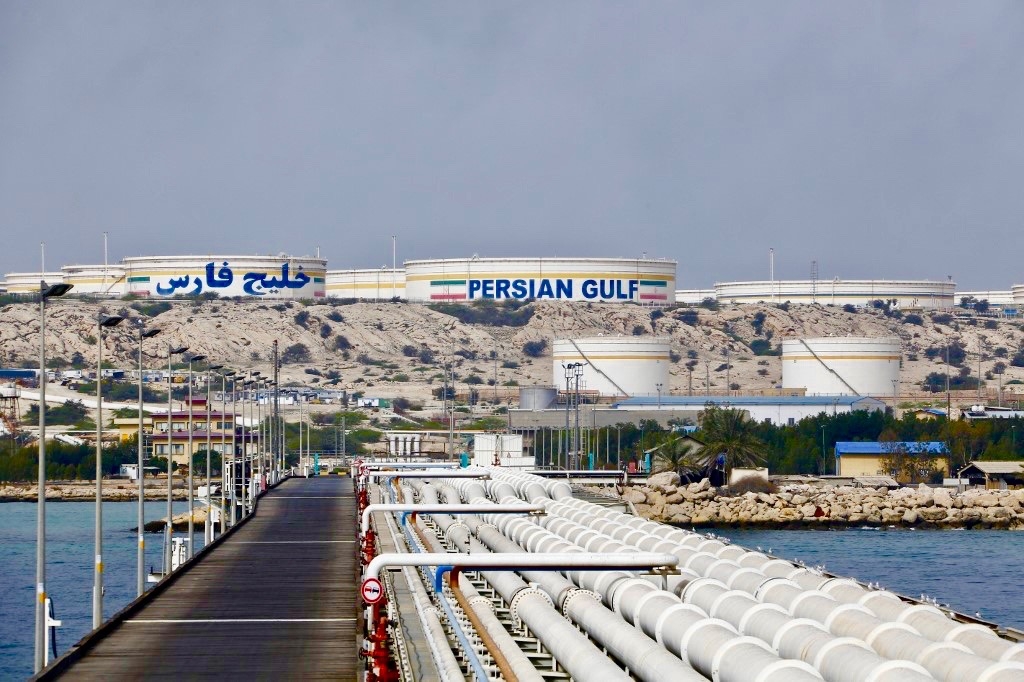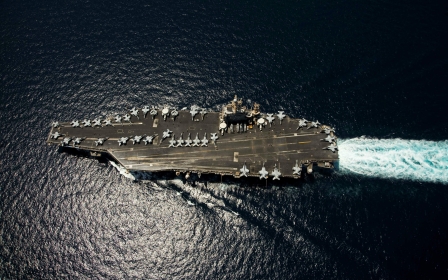Iran has no plans to leave Opec despite tensions, oil minister says

Iran has no plans to leave the Organization of the Petroleum Exporting Countries despite being treated like an enemy by some fellow members, Minister of Petroleum Bijan Zanganeh said in an interview published on Saturday.
"Iran has no plans to leave Opec ... and regrets that some members of Opec have turned this organisation into a political forum for confronting two founding members of Opec, meaning Iran and Venezuela," Zanganeh told the Iranian parliament news site ICANA, as reported by Reuters.
"And two regional countries are showing enmity towards us in this organisation. We are not their enemy, but they are showing enmity towards us ... and use oil as a weapon against us in the global market and world."
Zanganeh did not identify the two countries.
New MEE newsletter: Jerusalem Dispatch
Sign up to get the latest insights and analysis on Israel-Palestine, alongside Turkey Unpacked and other MEE newsletters
Tensions between Iran and Saudi Arabia and the United Arab Emirates - both US allies - have spiked this year after the two said they would increase oil production to make up for Iranian crude cut off from the market by US sanctions.
On Friday, US President Donald Trump's administration added Iran's largest petrochemical holding group to its sanctions list, accusing it of indirectly supporting Tehran's Revolutionary Guards. Washington said the move was aimed at drying up revenue to the elite Iranian military force, but analysts called it largely symbolic.
The fresh sanctions come amid weeks of escalating tensions between Iran and the US.
Last month, US officials accused the Iranian government of planning to attack American forces and interests in the Middle East.
While Iran rejected the allegation, the Trump administration sent a US naval strike group to the Gulf as a show of strength that aimed to send a "clear and unmistakable message to the Iranian regime".
Just this week, the top American military commander in the Middle East told NBC News he believed Iran or its proxies still pose an "imminent threat" to the US.
Tehran has also been blamed for the alleged "sabotage" of four vessels off the coast of the United Arab Emirates on 14 May, but Iranian leaders have denied that accusation as well.
Zanganeh was also cited by ICANA as saying the US had made it increasingly difficult for Iran to sidestep sanctions, but it had come up with "unconventional" ways to circumvent them, according to the Times of Israel.
"We have unofficial or unconventional sales, all of which are secret because if they are made known, America would immediately stop them," he said, quoted by ICANA and reported by the Times of Israel.
Zanganeh declined to give details on Iran's oil exports, saying he would not disclose figures until sanctions were lifted.
"We have thought about confronting America's actions and constantly have found and will find new ways, and anyway, this is a war where we are standing strong and will not retreat," he said, without elaborating.
The Trump administration says it is seeking to isolate Iran over its nuclear and ballistic missile programmes as well as its support for proxy groups in Syria, Iraq, Lebanon and Yemen.
Middle East Eye delivers independent and unrivalled coverage and analysis of the Middle East, North Africa and beyond. To learn more about republishing this content and the associated fees, please fill out this form. More about MEE can be found here.





